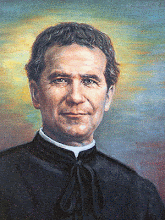The following comes from the Catholic Exchange:
What is in a whisper? When someone whispers, we quiet down, sharpen our ears and pay attention. A whisper conveys often the most important information–whether intimate words of love or secret words that tell of hidden matters. Whispers are usually more significant than shouts, but they also require more of us. If we fail to pay attention, we could miss the last words of a dying man or a key insight that could change the direction of our lives.
Whispers Good and Bad
Think of all the whispers in Scripture—Jesus’ words on the cross (“I thirst!”), the hushed speech of the lovers in the Song of Songs, the whispered exchanged between Jesus and the Beloved Disciple at the Last Supper. Of course, whispering has its dark side. Gossipers speak in a whisper. Conspirators plot in secret. Whispers, which seem designed for lovers, can be perverted into the tools of betrayal.
An Inviting Tone
The power of the whisper lies not in its overpowering thump as with a loud shout, but in its enticing draw, its invitation to draw near and lean closer. One who whispers invites us to share his secrets, to become one with him in a private, shrouded space. In the same way that lovers seek the seclusion of a long walk in the woods or a conversation behind closed doors, away from the bustle of the world, so too do those who seek God seek a kind of seclusion, a secret space away from others where He can be communed with, whispered to. Jesus invites his followers to such a private communion when he tells them to go into their rooms, close their doors and pray to the Father who sees in secret (Matt 6:6). Intimacy with God does not thrive in bluster, bombast and bravado, but in beautiful simplicity, when the soul finally takes to heart the words of Psalm 46: “Be still and know that I am God.” The moments of deepest prayer are usually moments of quiet awe before the throne of God.
Elijah and the Whisper of God
While we come to him with whispers both intimate and desperate, he strikingly comes to us with whispers of his own. In this Sunday’s reading from 1 Kings, we find Elijah on Mount Horeb waiting for such a whispered revelation from God. The story delivers us a paradox: that God can be expected to do the unexpected. Amazingly and appropriately, Elijah journeys all the way to Horeb to encounter God. The mountain has two names: Horeb and Sinai. It is the place where Moses met God at the burning bush and where God appeared in thunder and lightning to hand down the Ten Commandments. Elijah returns to this special mountain of God’s past revelation to encounter him anew. He goes to a place where he can expect God to show up. But of course, God does not come in the expected fashion. He does not descend in thunder and lightning, nor in fire, nor wind, nor earthquake. This time, he does not shout.
Instead, God speaks to Elijah in a “still, small voice” a whisper. Elijah might have wanted a shout. He was on the run from Ahab and Jezebel who were using their political power to try and kill him. Even though Elijah had just won the showdown with the prophets of Baal, his life was in danger and there was no safe place for him to go. In his moment of desperation, he seeks out the Lord. In the end, the Lord speaks to him and gives him a mission to do.



















No comments:
Post a Comment